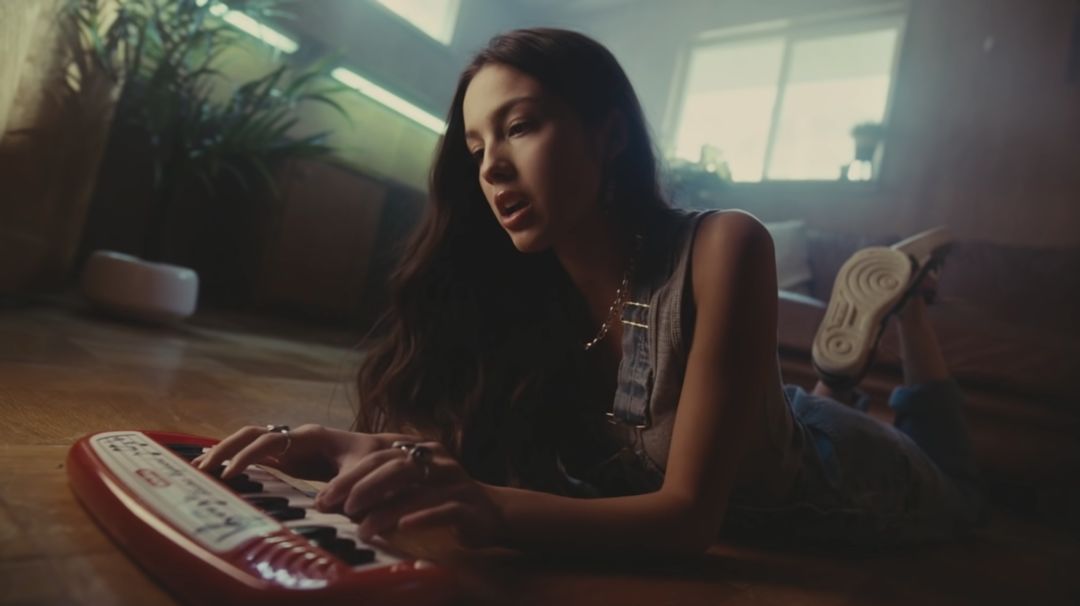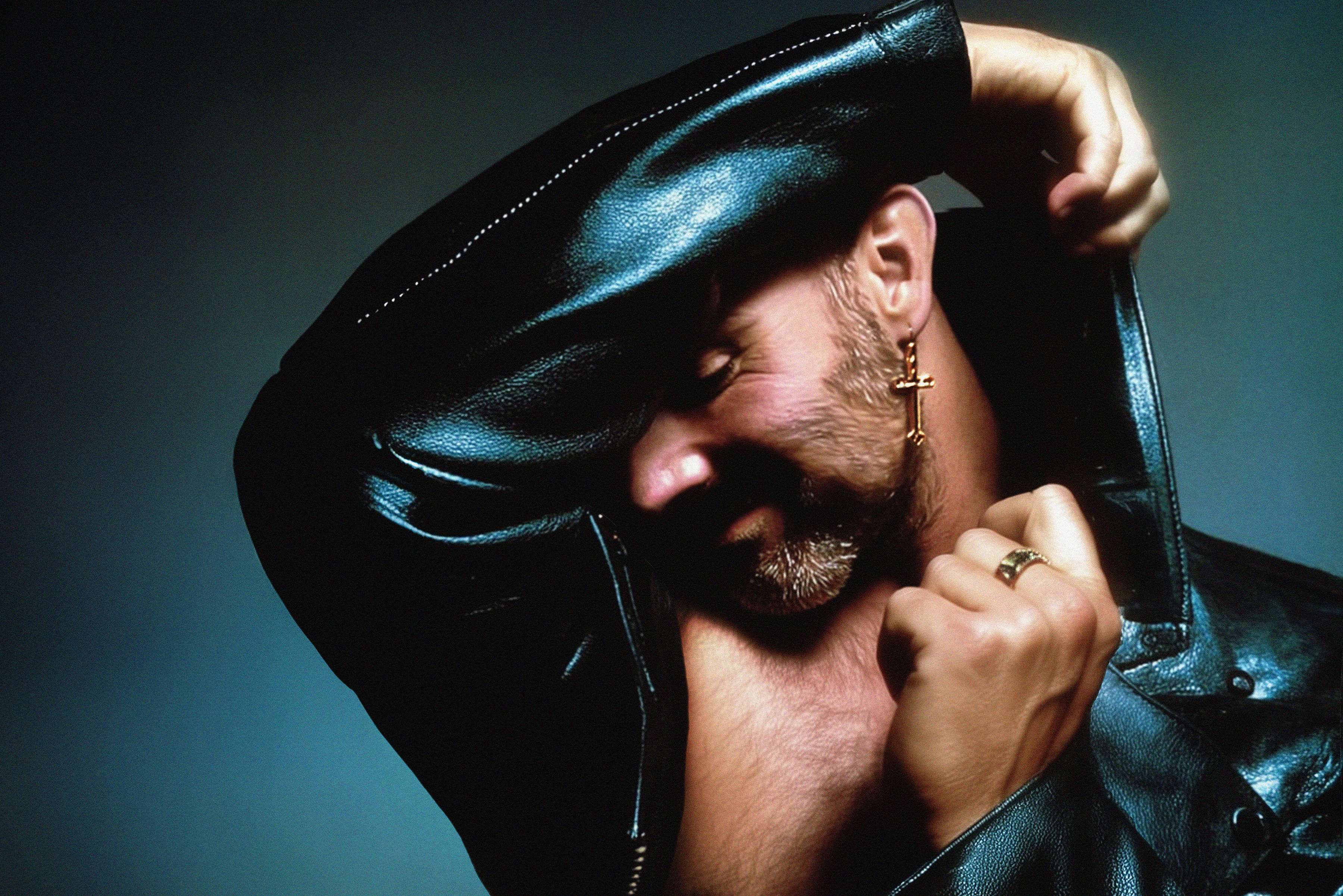Pop Culture Worth Your Time: ‘Drivers License,’ Josie and the Pussycats, and more

Olivia Rodrigo in the music video for “Drivers License”
Image: Geffen Records/YouTube
It's been, shall we say, a big news week for little old Portland. Our mayor pepper-sprayed an attorney-slash-dairy heir in front of a former mayor at the Hillsdale McMenamins. A motorist went on a violent, tragic, as-yet-unexplained rampage through Southeast Portland. To say nothing of GameStop disrupting the stock market or the impending impeachment trial.
Staying plugged in remains important, and exhausting, as ever. Here's what we're streaming to take the edge off a little this week.
Drivers License
I am not much for High School Musical: The Musical: The Series (really, that colon-fiasco is the best you could come up with, HSM peeps?). Hence, actor and singer Olivia Rodrigo was not on my radar until her debut single made the internet explode. Even 46-year-old, clearly-not-the-demographic me couldn’t avoid the wild enthusiasm from every music-adjacent publication, and I was forced to give it a listen. First reaction? Underwhelmed. Then I listened again. And yeah, turns out they’re right—it’s a cracking pop song, with just the right balance of specificity and universality to nail first-love heartache to the mast.
From the opening line—“I got my driver’s license last week”—it’s all there. The narcissistic pathos of youth and hope and big, big feelings that build to a crushing crescendo and then “I still fucking love you,” and we’re all there, all over again, sobbing in the suburbs. Finding out that it has spawned a thousand TikTok takes ("Drivers License" has been rewritten from the perspectives of everyone, including the ex-boyfriend, his new girlfriend, the person in the car BEHIND Rodrigo, and the eponymous drivers license itself) is a bonus, as is the intense speculation about the real subject of the song. (Could it really be her costar Joshua Bassett? Is Sabrina Carpenter the blond? Is HER new song "Skin" a clapback? Is this "Bad Blood: Next Generation"?) Then there’s her bond with Taylor Swift, whose influence is patent on “Drivers License,” and whom Rodrigo has referred to on social media as “mom,” with Swift calling her “my baby.” When she points out the latter was the highlight of her senior year, it’s Gen all the way Z.
Josie and the Pussycats
Josie and the Pussycats (now streaming on HBO Max) is the greatest film ever made. But don't take it from me—let YouTube's John Fields do the persuading:
Woefully (and puzzlingly) misunderstood in its day, Josie has become the kind of cult film that inspires ... well, breathless nine-minute video essays about its brilliance. The first scene in this movie features Seth Green and Donald Faison performing an ’NSync parody about anal sex called "Backdoor Lover," for Christ's sake. But wait, there's more. Where do I even start? With Parker Posey's definitive "delusional villain" performance in a feathered collar and steel-blue eye shadow? The fact that Rosario Dawson beats the shit out of Alan Cumming in this movie? Carson Daly's delivery of the line,"This isn't Total Request Live, it's more like Total Request Dead!" as he tries to kill Tara Reid?
The hinge of Josie's enduring appeal is that (spoiler, I guess?) it's a vaguely dystopian satire on consumer culture: the movie is littered, relentlessly, with brand logos (the filmmakers did not profit from the product placement; the companies just signed releases), and it's set in a world where pop music exists only to deliver mind-control messaging to the public about how orange is the new pink or Heath Ledger is the new Matt Damon. Crucially, though, the target of the film's derision is not the actual music the Pussycats make. Instead, it indicts the puppeteers who use that music to Trojan-horse their consumerist messages—it's a small distinction, but an important one, and it's key to the film's success. The movie doesn't look down on its central trio. And why would it? Their songs, written mostly by Adam Schlesinger from Fountains of Wayne and R&B producer Babyface, go the fuck off.
The cinematography is by the guy who would go on to shoot Requiem for a Dream and A Star Is Born. The production design is by the woman who designed The Virgin Suicides. You can tell. Josie and the Pussycats is better than any of those movies. It's a sharp, frothy blast, one that more than earns the force of its cult revival, and a potent chapter in the ongoing cautionary tale of dismissing the things teen girls love. —Conner Reed, arts & culture editor
Keira Knightley Impersonator Luke Millington-Drake
I’m not on TikTok anymore—my early pandemic dalliance with the platform only lasted a couple weeks—so luckily actor and Groundlings cast member @lukemillingtondrake crossposts his videos on IG for us older millennials to enjoy. His unhinged commitment to silliness is what pulled me in … but it’s his evolving Keira Knightley impression series that forced me to enable notifications.
Luke’s Keira is a flanderization of the Keira in Love, Actually who sees herself on the wedding tape and, turning around, genuinely surprised, exclaims, “I look quite prett-ayyy.” What a lark! What a plunge! —Marty Patail, editor in chief
Killing in Thy Name
What is whiteness? What does it mean to be white? In a new short documentary with The Ummah Chroma, an international artists’ collective, Rage Against the Machine takes aim at “the fiction known as whiteness.” The 15-minute documentary features author and activist Tim Wise as he teaches a group of young people about “whiteness,” and about how and when early immigrants started identifying as “white.” Intermittent throughout are quotes and clips from historians, activists, and even the band members themselves—the most notable being an interview with vocalist Zack de la Rocha who says, “Living in the States, you’re living in one of the most brutal societies in the history of the world. The country who inherited the genocide of the Native American people. A country which participated in slavery.”
Broken down and reimagined throughout the documentary, providing an aggressive ambiance, is Rage’s 1991 track “Killing in the Name.” Its weight and message seem as pointed as ever after a year of racial injustice and police violence. And by juxtaposing it with the myth of whiteness, the song almost becomes a rallying cry to reject that false narrative, for those who identify as white to reject a brutal, colonialist history that has constructed the idea of white supremacy to protect and preserve a “wealthy class.” It’s a powerful message that keeps its focus on the fact that “the children are always watching,” and are most affected by the systems of belief we pass down to them.
Beautifully shot, intimately crafted, and deeply insightful, Killing in Thy Name is worth 15 minutes of your time. Maybe listen to Evil Empire while you’re at it. —Gabriel Granillo, digital editor




